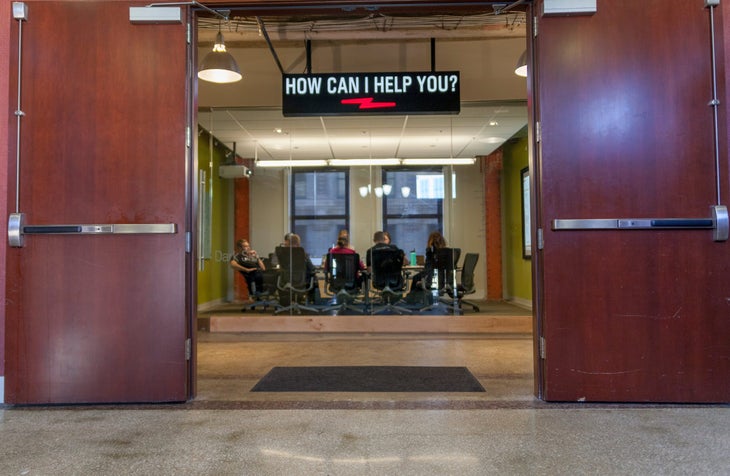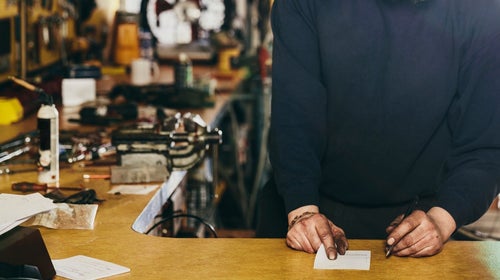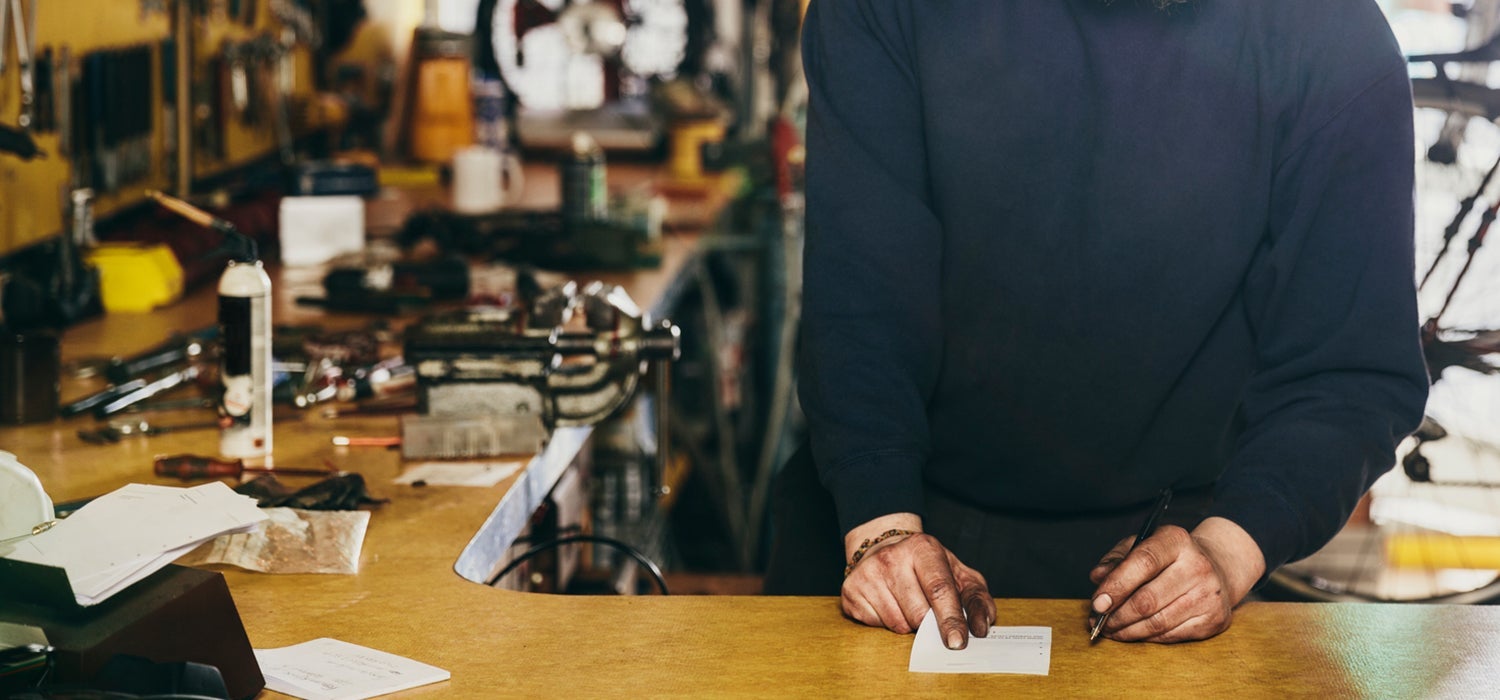“I’m not paying full price for that—I can get it on pro-deal.”
If you’ve been in, or adjacent to, the outdoor industry long enough, odds are you’ve heard a friend say this. Or you’ve heard a retailer complain about a customer who came in for a boot fitting, chatted for an hour about a product, and then left to buy it for 40 percent off with a pro-deal.
Foundationally, the purpose of a pro-deal program is to make it possible for industry influencers—be they ski instructors, retail floor sales associates, field biologists, or adventure journalists—to try out new gear at a lower cost. The theory is that these influencers will turn around and recommend the product to friends, sparking full-price sales.
But theory is one thing. In practice, many argue, pro-deal programs are too lax. Opponents say such programs over-distribute and undervalue product and undermine the efforts and bottom lines of specialty retail.
To discover the truth, we sat down to grill Nick Stagge, the VP of marketing at ExpertVoice. After starting his career at Zumiez and ascending to management-level positions at GoPro and Skullcandy, he’s seen the issue from all angles. He leveraged his retail, brand, and pro-platform experience to give us an inside look of the cons and pros (no pun intended) of expert-purchase programs.
What’s the real role of a pro-deal program?
Today’s consumers are overloaded with options and they’re skeptical of brand advertising, so they’re turning to people they know and trust for advice on what to buy. Savvy brands understand a part of their evolving role is to create meaningful, first-hand product experiences for the people being asked for recommendations.
This is the real role of a pro-deal program—getting products in the hands of people who will drive full priced consumer sales. But the truth is, a pro-deal program should be one arm of a much richer advocacy program
The rumor is that anyone can get a pro-deal nowadays. Is that true?
Sadly, in many cases this is true. When a brand loses sight of the real role of a pro-deal program, using it as a discounted sales channel, they degrade the impact and tarnish the reputation of all pro-deal programs.
But not all brands treat these programs with such carelessness. Brands like Arc’Teryx and Black Diamond are extremely cautious with who is given access to these discounts because they understand the long game—getting the right advocates sharing and talking about their experiences with the product in order to drive purchases.

It’s important to recognize that there are many types of “pros.” At ExpertVoice, we like to think about a few general types (although, one could make a case that there are additional variations): online influencers like Alex Honnold, industry professionals like Caroline Gleich, and retail sales associates like Courtney Crowe.
We advise brands to recognize the value of each type of “pro” and develop a unique program for each of them. This way your brand is present across multiple customer touch-points, building a stronger reputation and increasing a customers likelihood to buy your products. This also weeds out those individuals just looking for a discount on their next piece of gear.
Tell us a little more about that. How rigorous is your vetting process?
To become an expert on our platform you need to prove your expertise. For example, if you work at REI, you’d have to use your employee ID number to sign up. That number is checked against the REI employee database. If an REI employee leaves the company on Tuesday, brands no longer target them as an REI employee on Wednesday.
In some cases, it’s more difficult to leverage technology to verify expertise so we’ve employed an internal team dedicated to reviewing every single application, ensuring members have the appropriate credentials and proof of expertise. There is no other company that has this level of rigor around the verification process.
This is a big deal to the team at ExpertVoice, as we recognize the core value of any advocacy program (or pro-deal program) relies on the credibility and authenticity of the pros.
What about retailers? How can they possibly compete with pro-deal prices?
The whole program falls apart when brands stop thinking of the pro-deal program as a means to drive full-price sales. Retailers get upset, and rightfully so, when brands use these “programs” as a discounted sales channel.
The brand needs to have the guts to sit down and look at why they’re doing a pro-deal. And if the answer is anything other than getting product in the hands of experts to help sell more full-price product, they just need to call it something else. If you see a pro-deal happening end of season to get rid of dead-end inventory, that ain’t no pro-deal.
On the other side of the coin—retailers need to focus on the aspects of the customer journey they can control. It’s easy to blame pro-deal programs, eCommerce sites, or direct-to-consumer brands, for their recent struggles, but the truth is that the consumer buying journey is evolving. Retailers need to adapt or they will not survive.
Retailers need to empower their team to provide the best possible experience for every customer. A large part of this means empowering their team through detailed product training and first-hand product experiences (a.k.a, pro-deals).
Another common complaint is that pro-deal users try on product in stores, use up the fitter or sales associate’s time, and then leave the store, robbing that retailer of a potential sale. Is that the full picture?
Consumers walking into stores today are spending an equal amount of time interacting with the product and the sales associates as they are checking reviews and comparing prices on their smartphone. Retailers can’t change that. Technology has made the point-of-sale so easy we can tell Alexa “buy me a headlamp” and it will magically arrive at your door two days later. This is just the new reality.
The point of a pro deal is not to compete with retail sales. Give the expert the opportunity to learn about the product, and have an exceptional experience with your staff and they’ll not only recommend a specific product, but where to buy the product too.

Retailers may lose the sale of the advocate buying product on pro-deal, but these people (when vetted properly) are having 22 times the number of conversations about what to buy as a regular customer. The multiplier effect is insane compared to the loss of one sale. To think otherwise is short-sighted.
What about sales associates buying product on pro-deal? How does that impact retailers?
Ask yourself this question: When was the last time you recommended a product you knew little about and have never experienced? It doesn’t happen. Knowledge and experience matter. When I worked in a store and there was a product I didn’t know about, I ran from it. If a consumer asked me about it, I’d have no idea what to say, so I basically tried to avoid those interactions.
In a study of 63,000 sales associates in over 330 locations, we found that 69 percent of the people who engaged with product on ExpertVoice sold more than those who didn’t. And when someone engaged with just one module of content on ExpertVoice, they sold 87 percent more of that brand than those who didn’t. It’s not anecdotal; this is the largest academic study ever done on this subject. People who know more and use the product more, sell more.
How else can pro-deal programs help retailers?
The whole concept behind advocacy marketing—or pro-deal programs—is to help consumers buy more confidently. When this happens window shoppers convert to paying customers, average dollars per sale increases, and returns decrease. Essentially, these programs optimize the buying experience for customers and amplify the results for brands and retailers. It’s really that simple.


